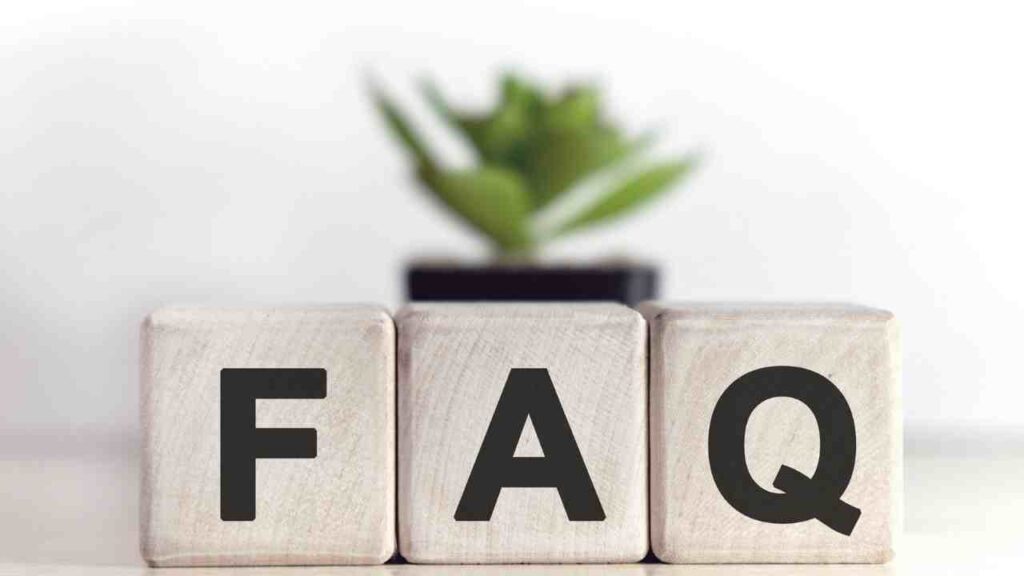How to Upgrade Sales Processes with CRM

Customer Relationship Management (CRM) systems have revolutionized the way businesses manage their sales processes. By leveraging technology and data, CRM platforms enable organizations to streamline their sales operations, improve customer relationships, and drive revenue growth. In this article, we will explore the benefits of using CRM for sales, discuss key strategies for upgrading sales processes with CRM, and provide real-world examples of successful CRM implementations.
The Benefits of Using CRM for Sales
Implementing a CRM system can bring numerous advantages to a sales team. Here are some key benefits:
- Improved Lead Management: CRM allows businesses to effectively track and manage leads throughout the sales pipeline. By centralizing lead data, sales teams can easily prioritize and nurture leads, increasing the chances of conversion.
- Enhanced Sales Forecasting: With CRM, sales managers can access real-time data on sales activities, deal progress, and revenue projections. This enables accurate sales forecasting, helping businesses make informed decisions and set realistic targets.
- Increased Sales Efficiency: CRM automates repetitive tasks, such as data entry and follow-up reminders, freeing up sales reps’ time to focus on selling. This boosts productivity and allows sales teams to handle a larger volume of leads.
- Better Customer Insights: CRM systems provide a comprehensive view of customer interactions, including past purchases, preferences, and communication history. This data empowers sales reps to personalize their approach, build stronger relationships, and deliver exceptional customer experiences.
- Improved Collaboration: CRM platforms facilitate seamless collaboration among sales team members. Sales reps can easily share information, collaborate on deals, and access up-to-date customer data, fostering a more cohesive and efficient sales process.
Strategies for Upgrading Sales Processes with CRM
While implementing a CRM system is a crucial step, maximizing its potential requires a strategic approach. Here are some strategies to upgrade sales processes with CRM:
1. Define Clear Sales Processes
Before integrating CRM into your sales operations, it is essential to define clear and standardized sales processes. This involves mapping out the stages of your sales pipeline, establishing key milestones, and defining the actions and metrics associated with each stage. By aligning your CRM system with these processes, you can ensure consistent and efficient sales execution.
2. Customize CRM to Fit Your Sales Workflow
Every sales team operates differently, so it is crucial to customize your CRM system to align with your unique sales workflow. This may involve configuring the CRM platform to match your sales stages, creating custom fields to capture specific data points, and setting up automated workflows to reflect your sales processes. By tailoring CRM to your needs, you can maximize user adoption and ensure seamless integration into your existing sales operations.
3. Integrate CRM with Other Sales Tools
CRM works best when integrated with other sales tools and platforms. For example, integrating CRM with email marketing software allows you to track email interactions and automate follow-up sequences. Integrating CRM with a sales dialer enables click-to-call functionality and call logging. By integrating CRM with other tools, you can create a unified sales ecosystem that enhances productivity and provides a holistic view of customer interactions.
4. Provide Comprehensive Training and Support
Successful CRM implementation requires proper training and ongoing support for your sales team. Provide comprehensive training sessions to familiarize your team with the CRM system’s features and functionalities. Offer ongoing support through documentation, video tutorials, and a dedicated support team to address any questions or issues that arise. By investing in training and support, you can ensure that your sales team fully embraces the CRM system and utilizes it to its full potential.
5. Continuously Analyze and Optimize
CRM provides valuable data and insights that can drive continuous improvement in your sales processes. Regularly analyze CRM data to identify trends, bottlenecks, and areas for improvement. Leverage built-in reporting and analytics tools to gain actionable insights into your sales performance. Use this information to refine your sales strategies, optimize your processes, and make data-driven decisions that lead to increased sales effectiveness.
Real-World Examples of Successful CRM Implementations
Let’s explore two real-world examples of companies that have successfully upgraded their sales processes with CRM:
Example 1: Company XYZ
Company XYZ, a software-as-a-service (SaaS) provider, implemented a CRM system to streamline their sales operations. By customizing the CRM platform to match their sales stages and integrating it with their email marketing software, they were able to:
- Increase lead conversion rates by 20% through improved lead nurturing and follow-up.
- Reduce sales cycle length by 15% by identifying bottlenecks and streamlining their sales processes.
- Improve sales team collaboration and visibility through real-time data sharing and deal tracking.
Example 2: Company ABC
Company ABC, a manufacturing company, implemented CRM to enhance their customer relationships and sales efficiency. By providing comprehensive training and support to their sales team and continuously analyzing CRM data, they achieved the following results:
- Increased customer retention by 25% through personalized communication and proactive account management.
- Improved sales team productivity by 30% by automating manual tasks and optimizing their sales processes.
- Boosted cross-selling and upselling opportunities by 40% through better customer insights and targeted sales strategies.
CRM systems offer significant benefits for upgrading sales processes. By implementing CRM, businesses can improve lead management, enhance sales forecasting, increase sales efficiency, gain better customer insights, and foster collaboration among sales teams. To maximize the potential of CRM, it is essential to define clear sales processes, customize the CRM system to fit your workflow, integrate CRM with other sales tools, provide comprehensive training and support, and continuously analyze and optimize your sales strategies. Real-world examples demonstrate the positive impact of CRM on businesses, showcasing increased lead conversion rates, reduced sales cycle length, improved customer retention, and enhanced sales team productivity. Embracing CRM as an all-in-one sales and marketing platform can empower small businesses, agency owners, and marketers to achieve their sales goals and drive revenue growth.
Upgrade your sales processes with CRM today. Visit https://SaasExpert.ca – Your All-In-One Sales and Marketing Platform for small businesses, agency owners, and marketers.
Learn more about “Adopting CRM for Modernizing Sales Operations” right here.
Frequently asked questions about How to Upgrade Sales Processes with CRM.

1. Why should I consider upgrading my sales processes with a CRM? 🤔
Answer: Great question! Upgrading your sales processes with a CRM can be a game-changer. 🚀 CRM systems offer a centralized platform where you can track customer interactions, follow leads, set reminders, and even automate repetitive tasks. This means your sales team can stay organized, reduce manual work, and focus more on building relationships and closing deals. Plus, with the analytics and insights a CRM provides, you can identify areas for improvement, making your sales process more efficient and effective. In a nutshell, a CRM can make your life easier and boost your sales! ✨
2. What kind of sales processes can be improved with a CRM? 📈
Answer: Honestly, almost all of them! 🌟 From lead generation to deal closure, a CRM touches every aspect. Here are a few examples:
Lead Tracking: Know where your leads are coming from and their stage in the sales funnel. 🎯
Email Automation: Send out timely and personalized emails to your prospects without missing a beat. 💌
Task Automation: Automate routine tasks so your team can focus on what they do best – selling. 🛠️
Performance Analytics: Understand which strategies are working and which ones need a tweak, based on real-time data. 📊
Remember, a CRM isn’t just about managing contacts – it’s about streamlining the entire sales journey. 🌐
3. How can a CRM help in increasing sales conversion rates? 💰
Answer: Ah, the golden question! 🌟 A CRM is like a superpower for boosting conversion rates. Here’s how:
Personalization: CRM allows you to segment your audience and tailor your messages. When a prospect feels understood, they’re more likely to convert. 💌
Follow-up Reminders: Never miss out on following up with a potential lead. Timing can be everything in sales! ⏰
Data-Driven Decisions: Use the analytics provided by your CRM to refine your sales strategies. Knowing what works and what doesn’t can significantly impact your conversion rates. 📈
Enhanced Communication: By having all customer information and previous interactions at your fingertips, you can communicate more effectively and build trust. 🤝
Increased conversions are often a delightful side-effect of a well-implemented CRM! 💹
4. Are CRMs suitable for both small and large businesses? 🏢
Answer: Absolutely! Whether you’re a startup just finding your feet or a large enterprise with thousands of customers, a CRM can cater to your needs. 🌍
For small businesses, a CRM can:
Help set a strong foundation for growth 🌱
Ensure every lead is nurtured 🌼
Optimize limited resources 🎯
For large businesses, a CRM can:
Manage vast customer databases efficiently 🗃️
Streamline complex sales processes 🔄
Facilitate team collaboration across departments 🤝
So, no matter the size of your business, there’s a CRM out there that fits just right. 👌
5. How do I choose the right CRM to upgrade my sales processes? 🧐
Answer: The perfect CRM depends on your business goals, size, budget, and tech savviness. But here’s a simple guide to help you out:
Define Your Needs: Are you looking for better lead management, email marketing, or analytics? Pinpoint your priorities. 🔍
Check Integration Capabilities: Ensure the CRM integrates seamlessly with your existing tools (like email services, marketing platforms, etc.). 🔗
Ease of Use: A user-friendly interface can make adoption easier for your team. No one wants to spend ages just navigating through a platform! 🌟
Scalability: As your business grows, will the CRM grow with it? It’s essential to choose a platform that can adapt to your future needs. 📈
Budget: While it’s an investment, ensure the CRM fits within your budget. But remember, sometimes you get what you pay for! 💸
Do some research, ask for recommendations, and perhaps even try out a few demos. The right CRM will feel like a natural extension of your sales team. 🚀






